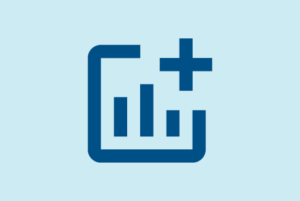The Centers for Medicare & Medicaid Services (CMS) has issued its calendar year (CY) 2021 physician fee schedule (PFS) final rule.
In addition to addressing annual payment updates for Medicare Part B clinicians and changes to the quality payment program, CMS finalizes several policies to make some COVID-19 telehealth and scope-of-practice flexibilities permanent, and delay clinical laboratory reporting requirements – including for hospital outreach laboratories – until 2022. The final rule is effective Jan. 1, 2021.
More information is available in a CMS fact sheet. CMS is also hosting a call on Dec. 10 at 10:30 a.m. (PT) on the key provisions of the final rule. Registration is required. CHA will provide members with a more detailed summary in the coming weeks.
Key highlights of the final rule include:
- Annual Payment Update: As required by the Medicare Access and CHIP Reauthorization Act of 2015, CMS finalizes a 0% payment update for the physician fee schedule for CY 2021. After applying the budget neutrality adjustment, the final conversion factor is $32.41 for CY 2021, a 10.2% decrease compared to the CY 2020 PFS conversion factor of $36.09.
- Evaluation and Management (E/M) Services: In the CY 2020 PFS final rule, the agency finalized changes to office and outpatient E/M visit coding and documentation policies to be effective for CY 2021. CMS finalized several additional modifications to its earlier policies, including clarifying the policies for the prolonged E/M visits add-on code. The agency also revalued several codes that include, rely upon, or are analogous to E/M visits, corresponding with the increases in values previously finalized for E/M visits for 2021. These increased payments for E/M visits will have a redistributive impact on different practice specialties, depending on the volume of E/M visits billed. Table 106 in the rule displays the specialty-specific impact of the E/M and other payment policies.
- Telehealth and Remote Services: CMS finalizes numerous changes related to telehealth and other remote services, including making permanent certain flexibilities allowed during the COVID-19 public health emergency. Among the changes, CMS adds several services to the approved list of Medicare telehealth services permanently, while finalizing an approved list of telehealth services that will remain for the calendar year following the end of the declared public health emergency. CMS also revises the frequency limitations for telehealth on subsequent nursing facility visits, and permanently allows licensed clinical social workers, clinical psychologists, physical therapists, occupational therapists, and speech language pathologists to furnish certain communication technology-based services. CMS notes that, under current law, it cannot waive the requirement that telehealth services be furnished using interactive telecommunication system to allow for audio-only telehealth services. However, in response to stakeholder comments, CMS adds on an interim final basis a new HCPCS G-code G2252 describing 11-20 minutes of audio-only medical discussion to determine the necessity of an in-person visit. CMS also finalizes its proposal to allow direct supervision to be provided using real-time, interactive audio and video technology through the calendar year in which the public health emergency ends or Dec. 31, 2021, whichever is later.
- Scope of Practice: CMS finalizes several changes to expand health care providers’ scope of practice, including making permanent changes that allow certain nonphysician practitioners (NPPs) to supervise the performance of diagnostic tests – as well as the delivery of diagnostic psychological and neuropsychological testing services – as permitted by state law and scope of practice. CMS also allows physical therapy assistants and occupational therapy assistants to furnish maintenance therapy services as part of a maintenance program, and clarifies that physicians and NPPs, including therapists, are authorized to review and verify documentation added to the medical record by other members of the medical team for the purposes of billing. CMS also finalizes several policies related to payment for services of teaching physicians.
- Clinical Laboratory Fee Schedule Reporting Requirements: CMS delays by an additional year the requirement that certain “applicable laboratories,” including hospital outreach laboratories, report their private payer data to establish payment rates for the clinical laboratory fee schedule (CLFS). Therefore, the next CLFS data reporting period will be delayed until Jan. 1, 2022, and run through March 31, 2022. The private payer laboratory data to be reported will still be based on the original data collection period of Jan. 1, 2019, through June 30, 2019. In addition, CMS extends the phase-in of payment cuts for CLFS services through CY 2024. As a result, there is a 0% reduction for CY 2021, and payment may not be reduced by more than 15% for CYs 2022 through 2024.
- Medicare Shared Savings Program (MSSP): CMS finalizes several changes to the MSSP quality performance standard and quality reporting requirements for performance years beginning on Jan. 1, 2021.
- Quality Payment Program: CMS finalizes several changes to the Quality Payment Program for the 2021 performance year, including changes to the category weights, revisions to align with changes to the Hospital Promoting Interoperability Program requirements, and changes related to advanced alternative payment model participation. CMS has made available a separate fact sheet on the Quality Payment Program policies.

